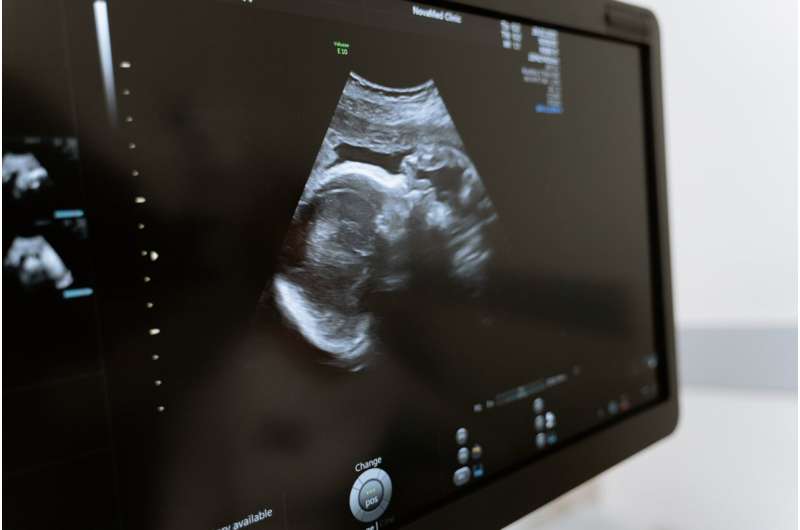This article has been reviewed according to Science X's editorial process and policies. Editors have highlighted the following attributes while ensuring the content's credibility:
fact-checked
peer-reviewed publication
trusted source
proofread
Study finds having a C-section is related to difficulties with conceiving

In a new study conducted at the University of Bergen, the researchers found a bidirectional relationship between C-section and the time it takes for a couple to conceive. The findings are published in the American Journal of Obstetrics and Gynecology.
Previous studies
have shown that women who have had a C-section tend to have more problems conceiving a baby than ones who have had normal, vaginal birth. "Many of these studies have utilized inter-pregnancy intervals to measure women's fertility," researcher Yeneabeba Sima at the University of Bergen, explains. "However, a measure of inter-pregnancy interval cannot distinguish between voluntary and involuntary delay in getting pregnant." Using data from The Norwegian Mother, Father and Child Cohort Study (MoBa) linked to the Medical Birth Registry of Norway (MBRN), Sima and colleagues assessed women's fertility. The MoBa questionnaire inquired whether or not women planned their pregnancies. "For those who actively tried to have a baby, we examined the time it took for them to conceive. If they had tried for a year or more before getting pregnant, they were considered to have reduced fertility," says Sima. The researchers examined differences in time spent trying to conceive among 42,379 MoBa participants, all of whom had at least one previously registered birth in the MBRN. The findings indicated that women with a prior C-section had a 10% decreased chance of conceiving their next pregnancy during a given menstrual cycle compared with those who had prior vaginal deliveries. The researchers also explored the association in the other direction, between reduced fertility and later C-section. Among 74,025 MoBa participants, 11% reported trying for more than one year before getting pregnant. They found that women who took one year or longer to conceive were 21% more likely to be delivered by C-section, as compared with women who spent less than 12 months trying to conceive. "In our study, women with difficulty conceiving have a higher prevalence of pregnancy complications. There is also a higher prevalence of chronic health issues likeAsking women if they planned their pregnancies
Women with fertility problems also had more C-sections
The associations between C-section and reduced fertility might not be causal
Previous studies concluded that reduced fertility following C-section could be a side effect of the surgical operation. However, Sima and colleagues suggest that common underlying risk factors could contribute to both reduced fertility and C-section.
"Maternal stress might be one reasonable explanation connecting challenges in conceiving and an elevated risk of labor difficulties, ultimately leading to a higher likelihood of C-section," Sima explains, and adds,
"Our findings suggest that the observed reduced ability to conceive after C-section may be linked to underlying maternal conditions not registered in our data or not yet clinically emerged, and the surgical procedure may not directly influence this pathway."
More information: Yeneabeba Tilahun Sima et al, The relationship between cesarean delivery and fecundability: a population-based cohort study, American Journal of Obstetrics and Gynecology (2023). DOI: 10.1016/j.ajog.2023.10.029





















